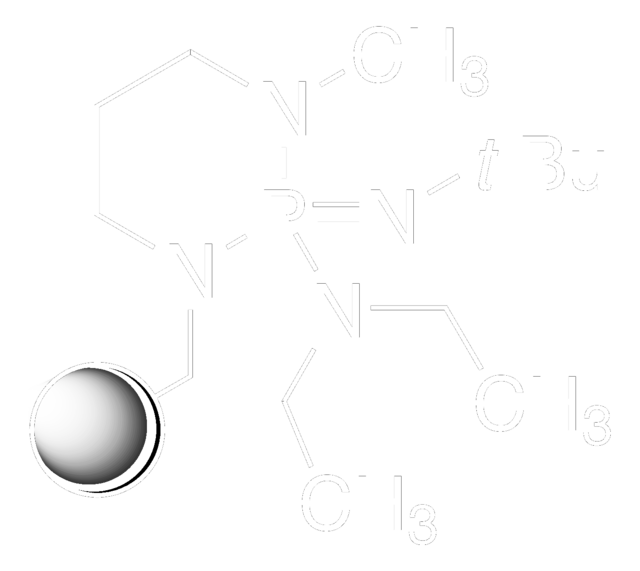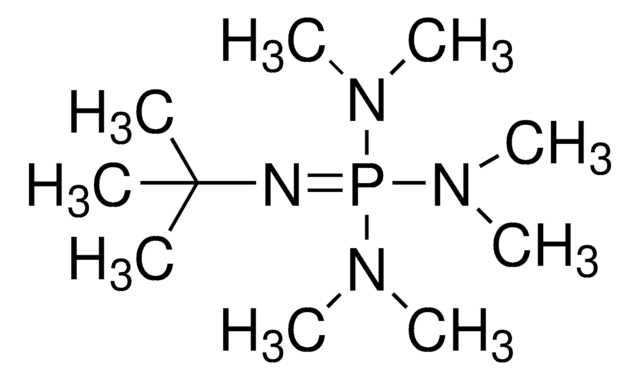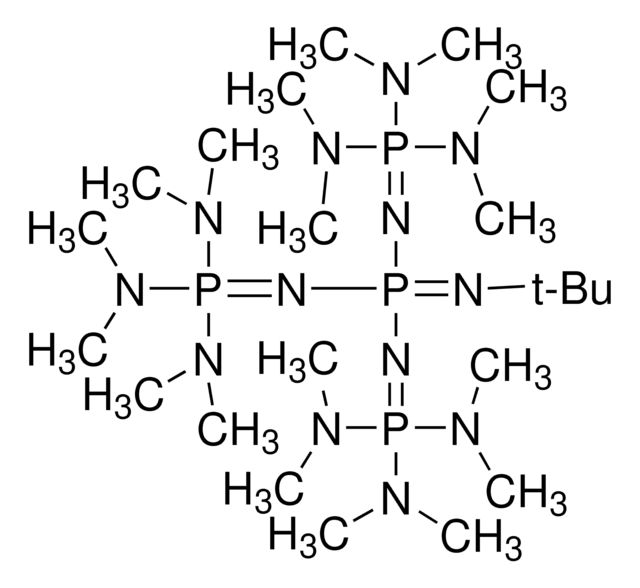536490
2-tert-Butylimino-2-diethylamino-1,3-dimethylperhydro-1,3,2-diazaphosphorine, polymer-bound
200-400 mesh, extent of labeling: 2.0-2.5 mmol/g loading, 1 % cross-linked
Synonym(s):
BEMP resin
About This Item
Recommended Products
crosslinking
1 % cross-linked
reaction suitability
reaction type: solution phase peptide synthesis
reactivity: proton reactive
extent of labeling
2.0-2.5 mmol/g loading
particle size
200-400 mesh
SMILES string
C=Cc1ccccc1.C=Cc2ccc(C=C)cc2.CCN(CC)P3(=NC(C)(C)C)N(C)CCCN3Cc4ccccc4
Looking for similar products? Visit Product Comparison Guide
Application
Signal Word
Danger
Hazard Statements
Precautionary Statements
Hazard Classifications
Skin Corr. 1B
Storage Class Code
8A - Combustible corrosive hazardous materials
WGK
WGK 3
Personal Protective Equipment
Certificates of Analysis (COA)
Search for Certificates of Analysis (COA) by entering the products Lot/Batch Number. Lot and Batch Numbers can be found on a product’s label following the words ‘Lot’ or ‘Batch’.
Already Own This Product?
Find documentation for the products that you have recently purchased in the Document Library.
Customers Also Viewed
Our team of scientists has experience in all areas of research including Life Science, Material Science, Chemical Synthesis, Chromatography, Analytical and many others.
Contact Technical Service

![2,8,9-Trimethyl-2,5,8,9-tetraaza-1-phosphabicyclo[3.3.3]undecane](/deepweb/assets/sigmaaldrich/product/structures/234/439/6e858589-146e-4f1e-968b-a50a4fa4ecf6/640/6e858589-146e-4f1e-968b-a50a4fa4ecf6.png)


![2,8,9-Triisopropyl-2,5,8,9-tetraaza-1-phosphabicyclo[3,3,3]undecane](/deepweb/assets/sigmaaldrich/product/structures/387/021/edaffe12-6e4b-4305-9030-749551ac828a/640/edaffe12-6e4b-4305-9030-749551ac828a.png)

![1,5,7-Triazabicyclo[4.4.0]dec-5-ene 98%](/deepweb/assets/sigmaaldrich/product/structures/171/446/333d560c-cff6-4958-b489-5acfb3057cce/640/333d560c-cff6-4958-b489-5acfb3057cce.png)


